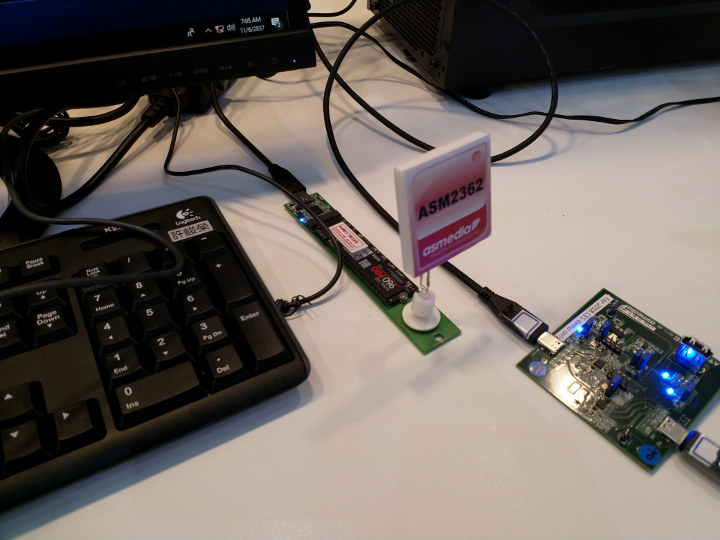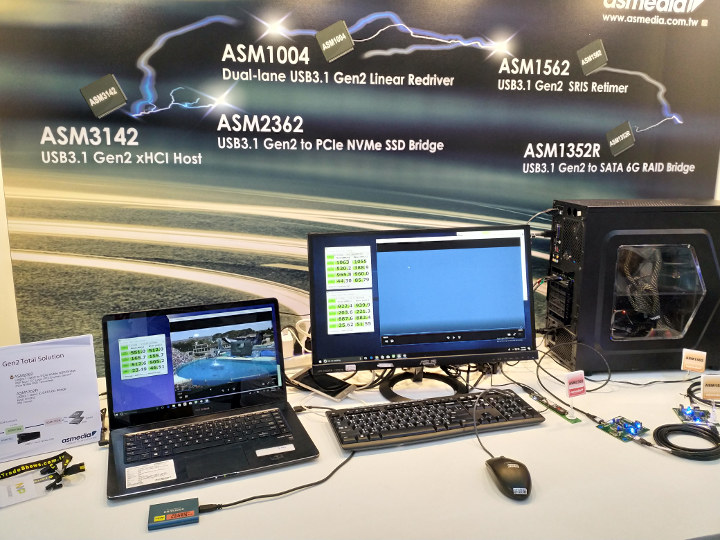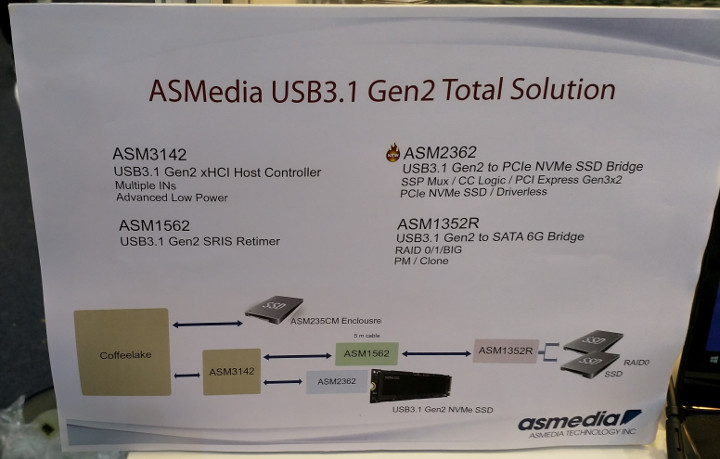Most USB enclosure or expansion drive are designed with a SATA interface that tops out at 6 Gbp. That’s fine in most cases, but if your host computer comes with USB 3.1 Gen2 SuperSpeed 10 Gbps (SuperSpeed+) port capable of even better performance, ASMedia now has a solution for faster USB drives with their ASM2362 USB 3.1 Gen2 to PCIe NVMe SSD chip.

The solution is pretty new, and ASMedia has not setup a product page on their website yet, but they showcased a demo at Computex 2018. In the photo above a Samsung 960 Pro SSD M.2 is connected to another USB board ASMedia – likely based on AS3142 Gen2 xHCI Host Controller – itself connected to a computer with a USB 3.1 Gen2 port. The photo below shows CrystalDiskMark benchmark results comparing ASM2362 USB to NVMe solution to a standard USB to SATA enclosure.

While the USB to SATA SSD achieves around 550 MB/s, the USB 3.1 to PCIe NVMe can deliver around 1GB/s data transfer, which should be close to the 10 Gbps limit once we take into account overheads. So if you need the best sequential performance out of USB 3.1 storage devices, USB NVMe SSD’s will be the way to go once products become available.
ASMedia also had a few other USB 3.1 Gen2 chips at Computex.
Thanks to TLS for the tip and photos.

Jean-Luc started CNX Software in 2010 as a part-time endeavor, before quitting his job as a software engineering manager, and starting to write daily news, and reviews full time later in 2011.
Support CNX Software! Donate via cryptocurrencies, become a Patron on Patreon, or purchase goods on Amazon or Aliexpress





